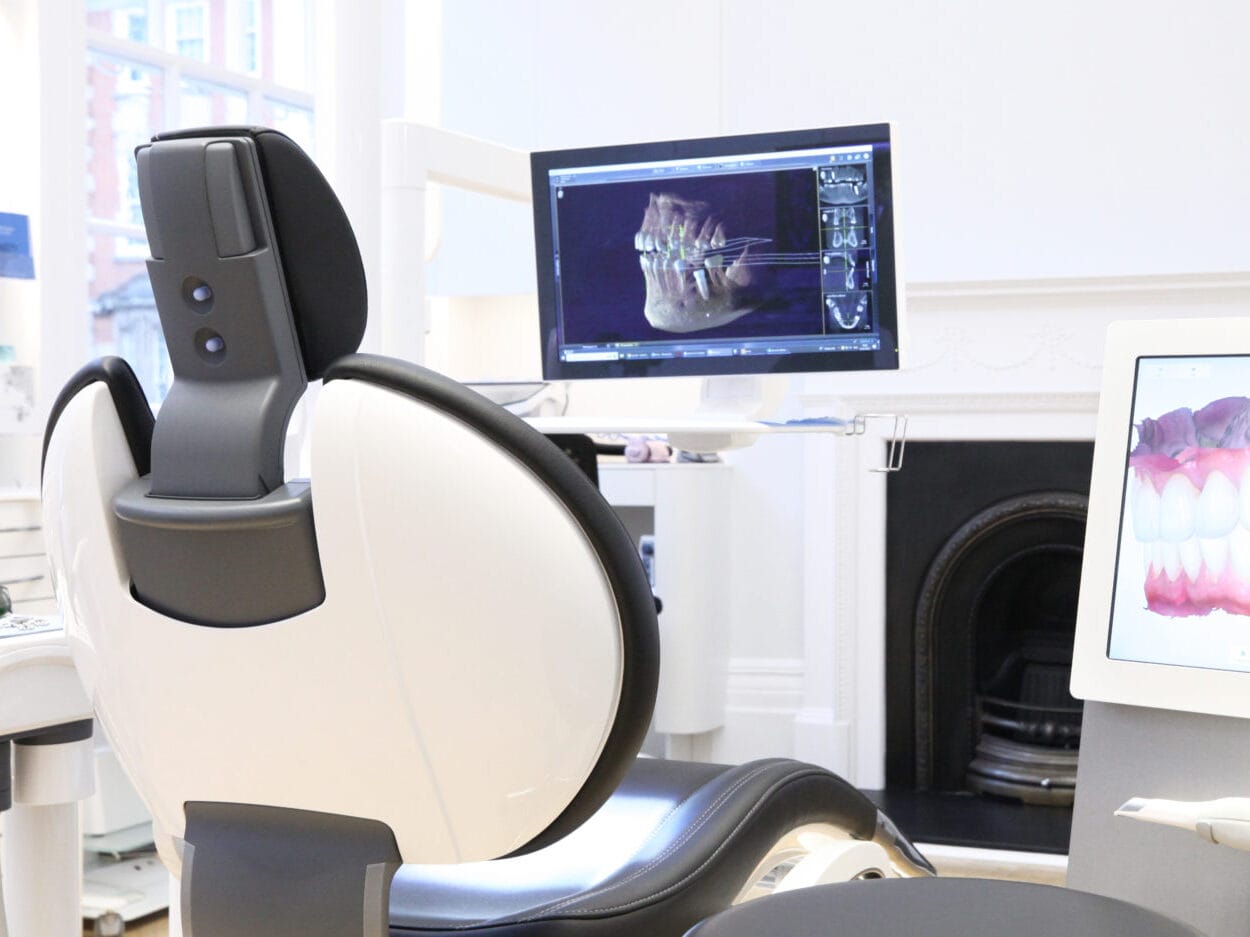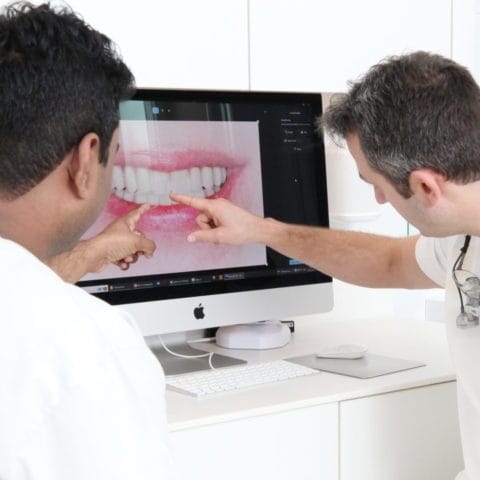Dental Braces in London
Braces are orthodontic devices that align and straighten teeth, improving dental health and aesthetics. Wimpole Street Dental Clinic stands out as a preferred orthodontist due to its blend of advanced technology, expert care, and personalised treatment plans. With a team of specialists committed to excellence, the clinic ensures each patient receives tailored care that addresses their specific needs, offering a range of innovative braces options.

Treatment
3 months - 2 years

Price
From £2,500

Team Experience
15+ years

Recovery Time
1 day

Google Rating
★★★★★ (4.9)
Examples of our work
Our braces case studies highlight the diverse range of treatments we offer, from traditional braces to more discreet options, designed to correct alignment, improve bite, and enhance overall dental health. Each story illustrates the journey from initial assessment to the final result, showcasing how we’ve helped patients achieve confident, healthy smiles tailored to their unique needs.

Braces are orthodontic devices used to correct issues with teeth alignment and bite, including crowding, misalignment, and gaps. They apply continuous pressure over time to slowly move teeth into a desired position. The UK has seen a notable increase in the use of braces, especially among adults and teenagers seeking improvements in dental aesthetics and health. While specific UK-wide statistics vary, there’s a growing trend towards both traditional and cosmetic orthodontic treatments, indicating a broader awareness of dental health and the benefits of orthodontic care.
How do braces work?
Braces work by applying continuous pressure to the teeth over time, gradually shifting them into the desired position. This process involves the use of brackets attached to each tooth and wires that connect the brackets. Tightening these wires periodically exerts pressure on the teeth, causing them to move. Over time, this movement corrects misalignments and improves the overall appearance and functionality of the teeth and jaw.
With braces, you can expect significant improvements in both dental health and aesthetics. Results include straighter teeth, a more aligned bite, and an enhanced overall appearance of the smile. These corrections can also lead to better oral hygiene, as well-aligned teeth are easier to clean. The specific outcomes depend on the individual’s initial dental condition and adherence to treatment, but the ultimate goal is a healthier, more confident smile.
What are the different types of braces?
Choosing the right type of braces is a crucial step towards achieving a beautiful, healthy smile. From traditional fixed braces to innovative options like Invisalign, each type offers unique benefits tailored to different needs and lifestyles. Whether you’re seeking invisible correction with lingual hidden braces or the flexibility of removable aligners, understanding your options helps ensure a treatment that aligns with your personal goals and comfort.
Fixed Braces
Fixed braces consist of brackets bonded to each tooth, connected by wires. They are adjusted regularly to move teeth into place. Unlike removable options, they are worn continuously. Ideal for complex alignment issues, they suit individuals requiring significant adjustments.
Removable Braces
Removable braces, like clear aligners, can be taken out for eating and cleaning. They’re less visible, offering aesthetic advantages over traditional braces. Best for mild to moderate alignment issues, they cater to those seeking flexibility and discretion.
Lingual Hidden Braces
Lingual hidden braces are attached to the back of the teeth, hiding them from view. They require specialized fitting and adjustment, making them more suitable for adults concerned with aesthetics. Good for a range of alignment issues, they are tailored for those prioritizing invisibility.
Invisalign
Invisalign uses a series of custom-made, clear aligners to straighten teeth. Aligners are replaced every few weeks to progress treatment. Virtually invisible and removable, Invisalign is ideal for adults and teenagers looking for a less noticeable, flexible orthodontic solution. You can read more about this kind of invisible brace on our dedicated Invisalign treatment page.
How long do braces take to work?
The duration of treatment with braces varies depending on the individual’s dental condition and the type of braces used. Generally, braces can take anywhere from 6 months to 3 years to effectively correct dental issues, with the average treatment lasting about 2 years. The specific time frame depends on the complexity of the alignment issues, the type of braces chosen, and the patient’s adherence to the orthodontist’s instructions.
What can you eat with braces?
With braces, it’s best to eat soft foods that don’t require much chewing and are gentle on your braces. Avoid sticky, hard, and chewy foods that can damage the braces. Opt for foods like soups, yoghurt, soft fruits, and cooked vegetables. It’s also important to cut foods into small pieces to make chewing easier.
Meet your award-winning Braces dentist and team…
- We have over 75+ years of combined dentistry experience across our specialist team.
- 10,000+ treatments performed and counting.
- We are leaders in the dental industry – we regularly teach, lecture and publish our research work internationally.
Our Expertise
Dr Sudarshan, our skilled Orthodontist at Wimpole Street Dental Clinic, specialises in discreet teeth alignment solutions. Her precise and gentle approach emphasises patient comfort and confidence, evident in the personalised care she provides. With her extensive experience, Dr Sudarshan offers tailored treatment options that meet each patient’s unique needs and preferences, ensuring inconspicuous and effective results.
With her expertise and unwavering commitment to staying up-to-date with the latest developments in orthodontic care, patients can rest assured that they are receiving exceptional care from Dr Sudarshan.
At our dental clinic in London, we take pride in providing the latest and most innovative orthodontic technology and techniques available.
With a focus on utilising the latest advancements in the field, we strive to offer our patients efficient, dependable, and rapid results.
Who should have braces?
Braces are suitable for individuals of any age looking to correct dental issues such as misaligned teeth, overcrowding, gaps, overbites, underbites, and other bite irregularities. Both children and adults can benefit from braces, with the typical recommendation for children being an evaluation around the age of 7 to plan for potential orthodontic needs. Ultimately, the decision to have braces should be made in consultation with an orthodontist, who can assess specific dental issues and recommend the most effective treatment.
Adults in the UK and worldwide are increasingly opting for braces, with a significant shift towards more aesthetic and less invasive orthodontic treatments like Invisalign. This trend reflects a growing desire among adults to improve their smiles and dental health without the traditional metal braces’ visibility and maintenance challenges.
The popularity of Invisalign, a clear aligner system, has been on the rise due to its discreet nature and convenience. It’s been reported that over 10 million people globally have undergone Invisalign treatment, highlighting its effectiveness and wide acceptance. This aligner system is particularly appealing because it is virtually invisible and can be removed for eating and cleaning, offering a flexible and less intrusive option compared to traditional braces. Invisalign has proven to be a popular choice not only among teenagers but also significantly among adults, who appreciate the ability to undergo orthodontic treatment without it being noticeable to others. The duration of Invisalign treatment can vary but is typically shorter than traditional braces, ranging from 6 to 24 months, depending on the individual’s needs.
Adult orthodontic patients are also motivated by the understanding that orthodontic treatments can contribute to their overall health and wellness, beyond just achieving a straighter smile. This holistic approach to dental care, where the aesthetics of the smile and the health benefits of properly aligned teeth are both valued, has encouraged more adults to seek treatment (NewMouth).
In the UK, the acceptance of orthodontic treatments among adults reflects a broader global trend of prioritising dental health and aesthetics, indicating a shift in how dental care is perceived and valued across different age groups.
Take your first step with Wimpole Street Dental Clinic
Discover the path to a brighter smile with Wimpole Street Dental Clinic! Our team of skilled professionals utilises advanced technology to provide personalised dental care in a comfortable setting.
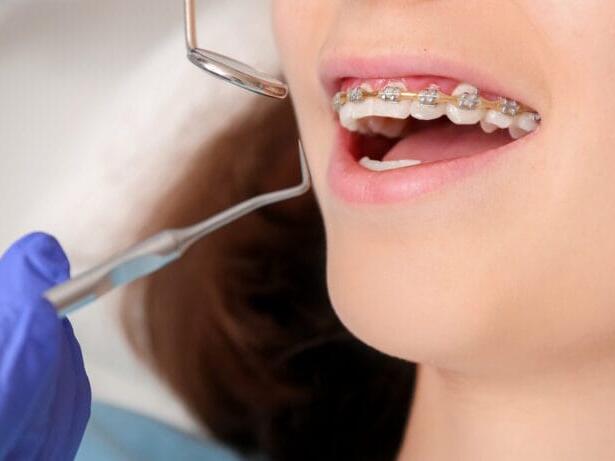


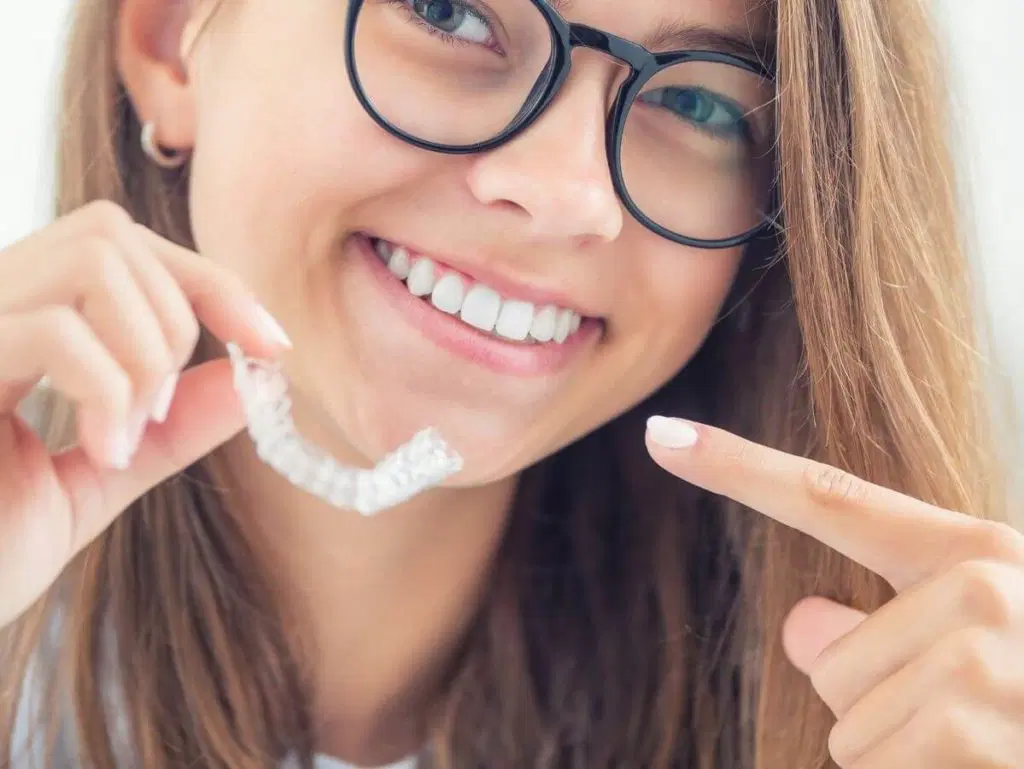
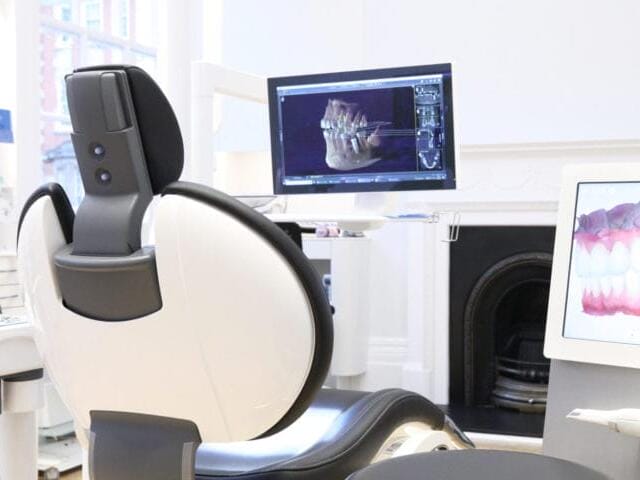
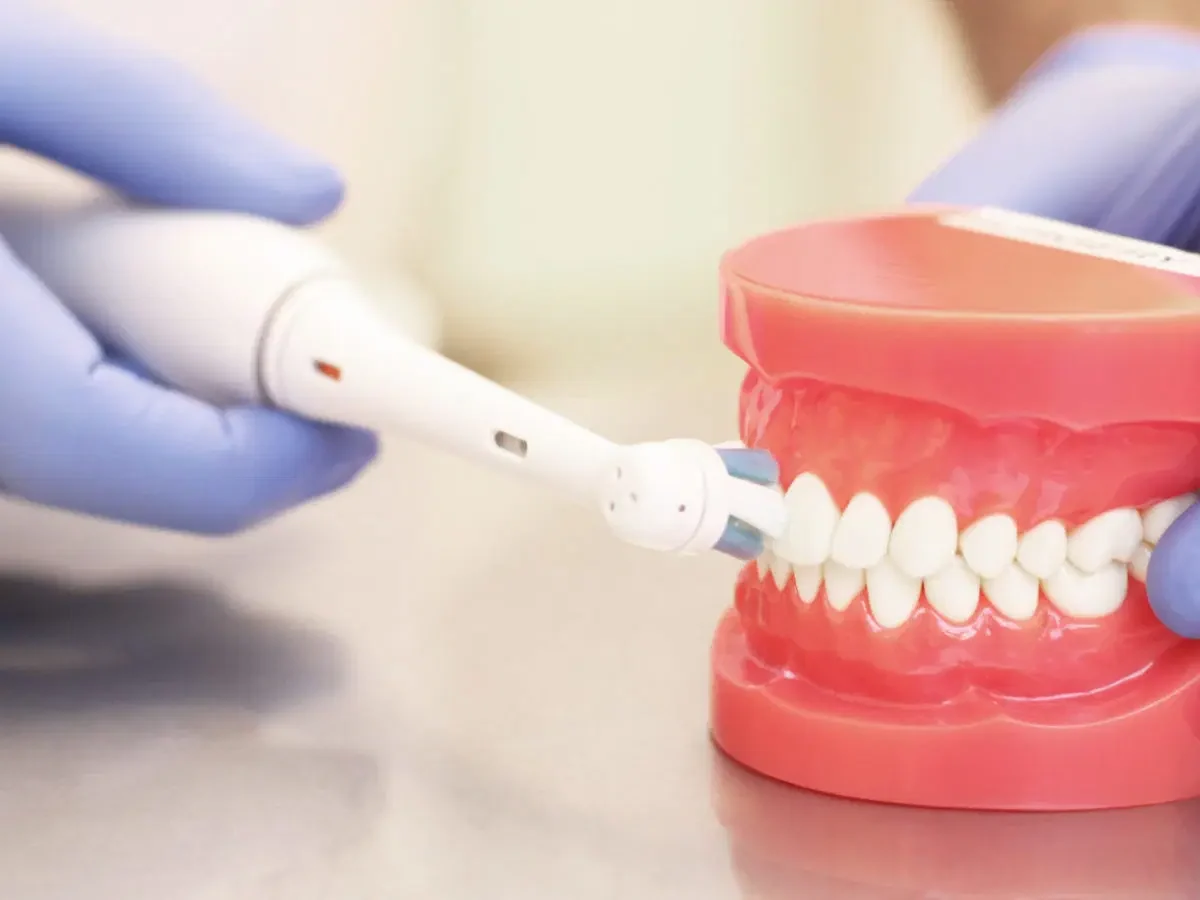
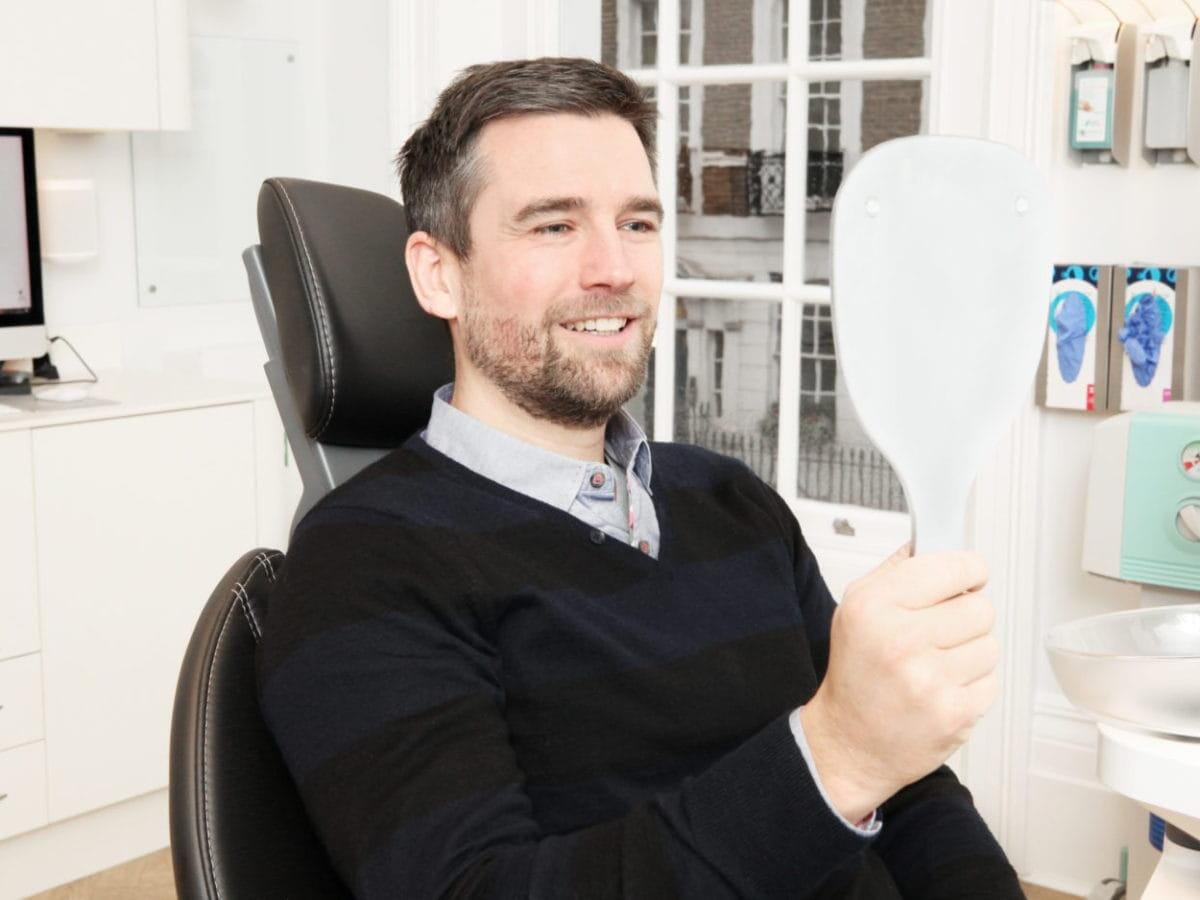
New hero banner and case studies added
Written by: Dr Sanjana Sudarshan
Medically reviewed by: Prof Dr Christian Mehl
New page created
Consolidated lingual, friction, corrective and ceramic brace pages into one singular page for ease of use.
Written by: Dr Sanjana Sudarshan
Medically reviewed by: Prof Dr Christian Mehl
Wimpole St Dental Clinic has strict sourcing guidelines and relies on peer-reviewed studies, academic research institutions, and medical associations. We avoid using tertiary references. You can learn more about how we ensure our content is accurate and current by reading our editorial policy.
- Bucci R, Rongo R, Zunino B, Michelotti A, Bucci P, Alessandri-Bonetti G, Incerti-Parenti S, D’Antò V. Effect of orthopedic and functional orthodontic treatment in children with obstructive sleep apnea: A systematic review and meta-analysis. Sleep Med Rev. 2023 Feb;67:101730. doi: 10.1016/j.smrv.2022.101730. Epub 2022 Dec 2. PMID: 36525781.
- Agostino P, Ugolini A, Signori A, Silvestrini-Biavati A, Harrison JE, Riley P. Orthodontic treatment for posterior crossbites. Cochrane Database Syst Rev. 2014 Aug 8;(8):CD000979. doi: 10.1002/14651858.CD000979.pub2. Update in: Cochrane Database Syst Rev. 2021 Dec 24;12:CD000979. PMID: 25104166.
- Glineur R, Balon-Perin A. L’orthodontie de l’enfant et de l’adulte [Orthodontic treatment in children and adults]. Rev Med Brux. 2001 Sep;22(4):A299-303. French. PMID: 11680192.











